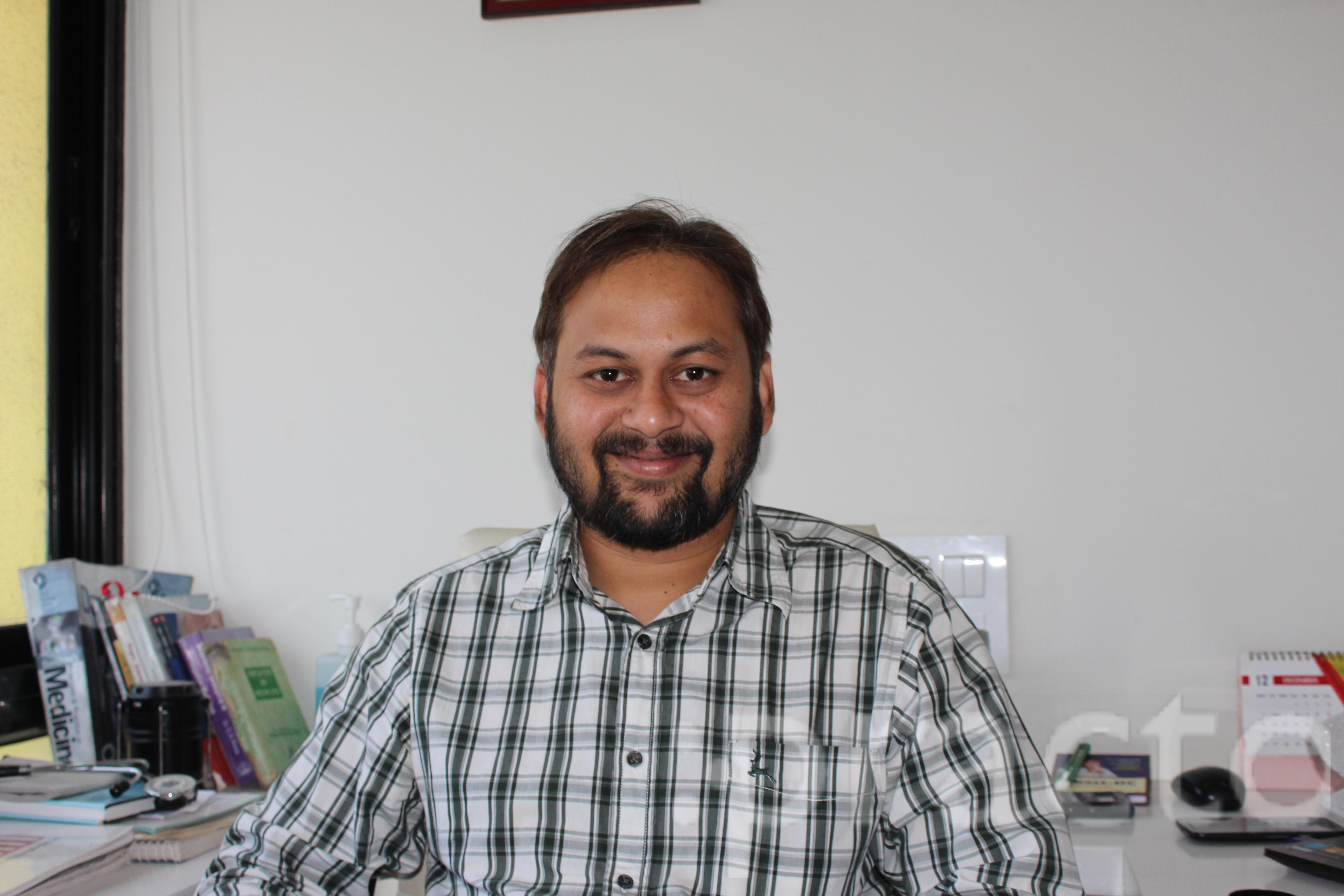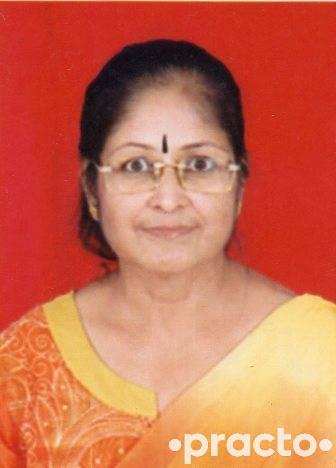Contents
In this article we will look at:
- What are varicose veins?
- How do varicose veins occur?
- Who is prone to varicose veins?
- What are the causes of varicose veins?
- What are the symptoms of varicose veins?
- How are varicose veins diagnosed?
- What are the complications of varicose veins?
- What is the treatment for varicose veins?
You can click on any of the links above to navigate to the section of your interest.
What are varicose veins?
Varicose veins is a condition in which veins become swollen, gnarled, and have a bluish-purple or red colour. This condition is also known as varicoses or varicosities and occurs when the veins are overfilled with blood. These veins are often very painful. Any vein may become varicose, but the most commonly affected veins are those in your legs and feet.
Primarily women are affected by this condition, though nowadays the number of men affected by this condition has also increased.
How do varicose veins occur?
Our veins have one-way valves that prevent blood from flowing backwards. When the walls of a vein become weak especially near a valve, the valve becomes leaky and malfunctions. The blood then begins to flow backwards instead of towards the heart. Once this happens, it puts a lot of pressure on the vein which can cause the vein to widen and the occurrence of more leaky valves.
Varicose veins often affect the legs. The veins there are the farthest from your heart, and gravity makes it harder for the blood to flow upward.
Who is prone to varicose veins?
The factors which can make you prone to varicose veins include:
- Increasing Age: The risk of varicose veins increases with ageing since with age the veins become weak and eventually wear and tear can occur, which may cause the valves to malfunction.
- Gender: Women are more prone to suffer from varicose veins. Hormonal changes during pregnancy, pre-menstruation or menopause are some factors that are responsible. Also, taking hormone replacement therapy, or birth control pills may increase the risk of varicose veins.
- Family History: If you have a family history of varicose veins, there is a great chance you may inherit the condition.
- Being Obese: Extra weight can put more pressure on your veins and cause varicose veins.
- Staying Put in the Same Position For Long Periods: Sitting or standing for long periods at a stretch can affect the blood circulation and thus cause varicose veins.
What are the causes of varicose veins?
Some causes of varicose veins include:
- a family history of varicose veins
- ageing
- pregnancy
- menopause
- standing or sitting for long periods at a stretch
- obesity
What are the symptoms of varicose veins? How are varicose veins diagnosed?
The symptoms of varicose veins include:
- dark purple or blue coloured veins
- bulging, painful, and hardened veins
- twisted and bulging veins
- a heavy feeling in your legs
- swelling in your lower legs and muscle cramping
- bleeding in the affected veins
- heightened pain after sitting or standing for a long time
- itching in the affected areas
- inflammation of the skin
- skin ulcers near your ankle (which could be a sign of vascular disease)
Diagnosis
Generally, a general physician or a primary care doctor can diagnose, treat, and monitor varicose veins. If your case is more severe, the general physician may refer you to a vascular surgeon.
To diagnose varicose veins, your doctor will first perform a physical exam. He will check for bulging veins as well as blood clots. He may suggest you to undergo an ultrasound to check if your veins functioning normally or to find any evidence of blood clot.
What are the complications of varicose veins?
Complications of varicose veins, although rare, can include:
- Ulcers which can form on the skin near varicose veins, particularly near the ankles.
- Blood clots, which is a condition known medically as thrombophlebitis may occur.
- Bleeding which can occur when the enlarged veins very close to the skin may burst. This requires immediate medical attention.
What is the treatment for varicose veins?
Medical Treatment for Varicose Veins
The doctor may ask you at first to wear compression stockings, which is the immediate treatment for varicose veins.The stockings will squeeze your legs, thus squeezing your veins to let the blood flow easily towards the heart.
However, if compression stockings do not work you may have to undergo minimally invasive procedures such as :
- Laser surgeries for varicose veins
- Sclerotherapy
- Catheter-assisted procedures using radiofrequency or laser energy
- High ligation and vein stripping
- Endoscopic vein surgery in severe cases
Exercise
Certain exercises can be extremely good for varicose veins such as walking, running, jogging, swimming, yoga, and pilates. Do consult your doctor before you decide on any exercise regimen to check if it will be suitable for your condition.
Patient Experiences



Questions answered by trusted doctors

O.K BYE.

The veins have certain valve like mechanism which allows the blood to move upwards toward the heart. The valves have leaflets. When the leaflets loose their elasticity, the valves loose their capacity to push blood upwards; hence there is a back pressure which leads to further elongation of the veins. The veins also have reduced elasticity. As a result, the veins get ‘tortuous’ or twisted; as well as hardened. The veins, thus, become visible as zigzag vascular tubes, especially on legs.
Varicose veins affect especially the depending parts of the body that is lower limbs, which gets even worse when one tends to stand longer. People in the business of standing for long, such as sales people, policemen, plastic surgeon (tend to stand for hours during surgery), etc. are risk of developing varicose veins
Homeopathy works very well for mild to moderate cases of varicose veins. It helps to reduce pain, control further varicosity, reduces swelling. Homeopathy also helps significantly in the cases which have varicose ulcers. Homeopathic treatment is strongly recommended for all cases of varicose veins

Did you know?
More common in women
About 30 to 40% of men & women suffer from varicose veins the incidence seems to be increasing world over.
Women more prone
Women are four times more likely to suffer from varicose veins than men. A major factor is pregnancy. Carrying a baby puts a strain on the veins in the pelvis.
Younger population are frequently affected
It has been observed these days that young office going people are suffering more from varicose veins which could be due to the long standing hours.
Related videos
Related articles
Nausea is the uneasiness one feels in the stomach, just before one feels the urge to vomit. Find out about nausea medicine, symptoms, remedies. Get information, videos and facts about nausea on Health-Wiki | Practo
Constipation is infrequent or hard to pass bowel movements, or even a sense of incomplete emptying after a bowel movement. Know more about Constipation its causes, symptoms, treatment and other useful facts, links and videos on Health-Wiki | Practo
The treatment method of using various treatments like chemotherapy, radiation, anti-cancer drugs to either cure, treat, control, or reduce the symptoms of any types of cancer can be grouped together as cancer treatments.




The veins have certain valve like mechanism which allows the blood to move upwards toward the heart. The valves have leaflets. When the leaflets loose their elasticity, the valves loose their capacity to push blood upwards; hence there is a back pressure which leads to further elongation of the veins. The veins also have reduced elasticity. As a result, the veins get ‘tortuous’ or twisted; as well as hardened. The veins, thus, become visible as zigzag vascular tubes, especially on legs.
Varicose veins affect especially the depending parts of the body that is lower limbs, which gets even worse when one tends to stand longer. People in the business of standing for long, such as sales people, policemen, plastic surgeon (tend to stand for hours during surgery), etc. are risk of developing varicose veins
Homeopathy works very well for mild to moderate cases of varicose veins. It helps to reduce pain, control further varicosity, reduces swelling. Homeopathy also helps significantly in the cases which have varicose ulcers. Homeopathic treatment is strongly recommended for all cases of varicose veins